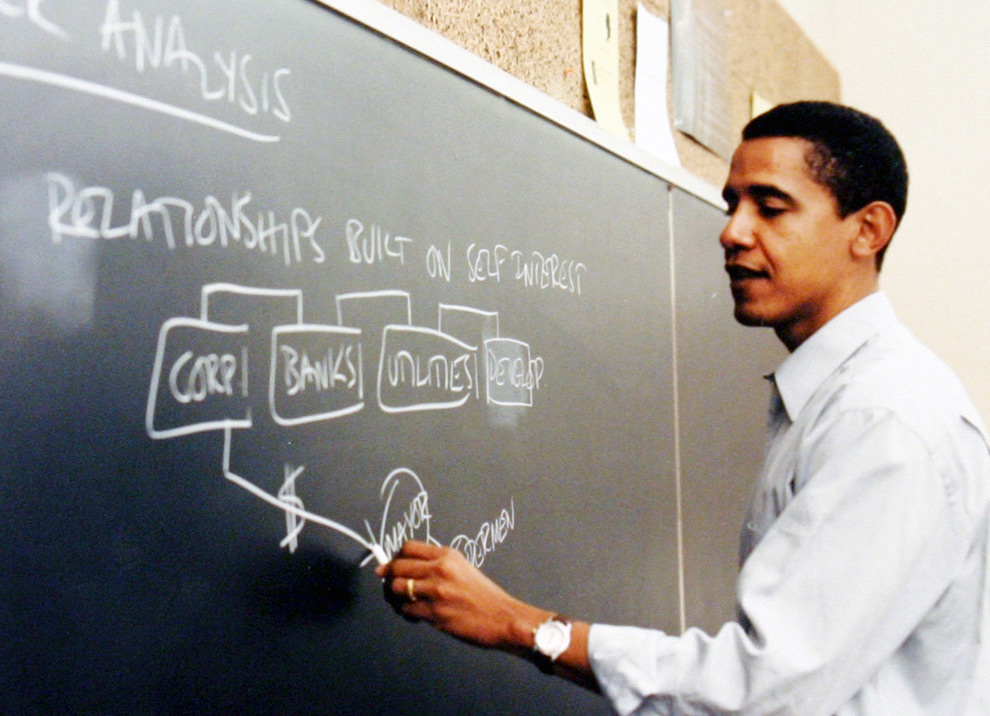The test seems quite lengthy for the average person; students had six hours to write an up to 12-page paper, answering and expanding on two long scenarios. The first question: help a married couple clone their only daughter.
 |
| Professor Obama |
The scene is set by then-Professor Obama thusly: Mary and Joseph are middle-aged parents who live in "Bethlehem City." Their daughter, Dolly, was in a horrible car accident, after which she entered a "vegetative state." After discussing the issue, and faced with a "void," her parents have decided to clone her, even though the will that Dolly had left is vague about what she wanted after death.
Her parents also say that they heard her talk about cloning at least once and that they would like to use that as evidence that Dolly would have liked to be cloned. However, they live in the imaginary state of "Futura," which is one of the few states that has banned cloning.
You are Mary and Joseph's lawyer. You might expect such a complex question to allow the student to argue whether it is legal/constitutional, using evidence of their choice. But no. Your job is to help them clone their daughter, period.
The first question is decidedly vague: as their lawyer, you need to tell Mary and Joseph whether their "rights" are being violated if they are not allowed to clone their daughter. Professor Obama stresses that students "do not need to arrive at a definitive conclusion." However, he states that students should "consider" that a ban on cloning "does in fact encroach on some constitutionally recognized rights," but that the ban is "possibly" constitutional anyway.
Here is the entirety of the second question:
Second, assuming Mary and Joseph decide to transport Dolly to a state that already permits human cloning, they would like to know whether they can mount a successful constitutional challenge to a possible state ruling that neither Dolly’s “living will” nor her general statements regarding cloning are sufficiently indicative of Dolly’s consent to permit the removal of her cells for cloning purposes. In answering this question, assume that under both the common law and statutory law of all states, Dolly’s general statements regarding cloning would not constitute “clear and convincing” evidence of her consent to be cloned, but might be considered evidence of consent under a “preponderance of the evidence” (that is, a “more likely than not”) standard.The first thing to notice is that then-Professor Obama already assumes that many states are already open to and allow legal cloning. How he has come to this conclusion, particularly considering that when he wrote this cloning was banned across the board, is a question in itself.
 |
| Mr. Obama now |
Also, did anyone notice the names "Mary and Joseph?" The names of Jesus' human parents. At the very least, the choice of those names is very odd.
Please bookmark!

No comments:
Post a Comment